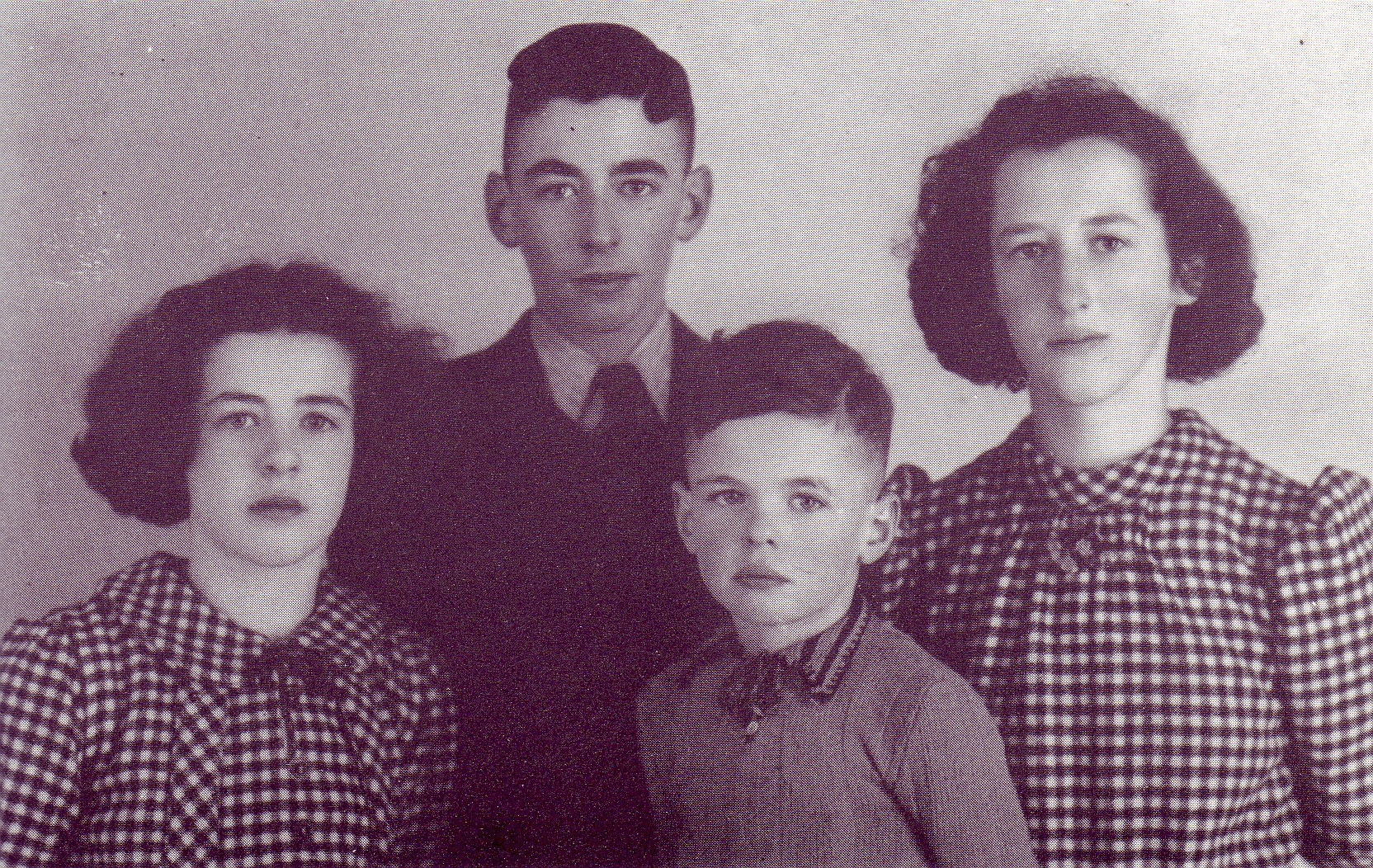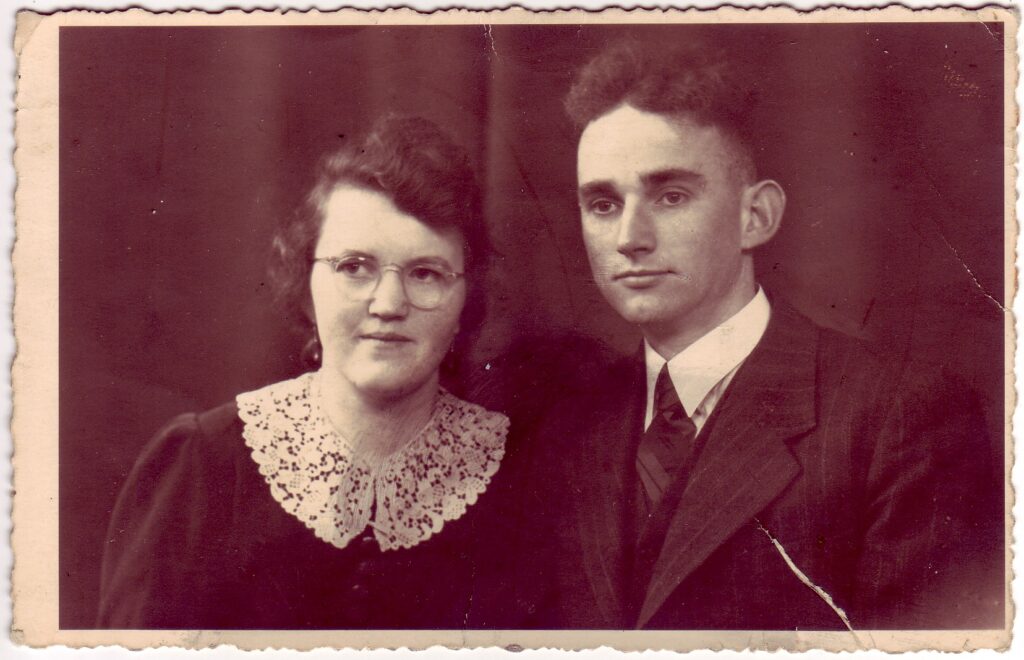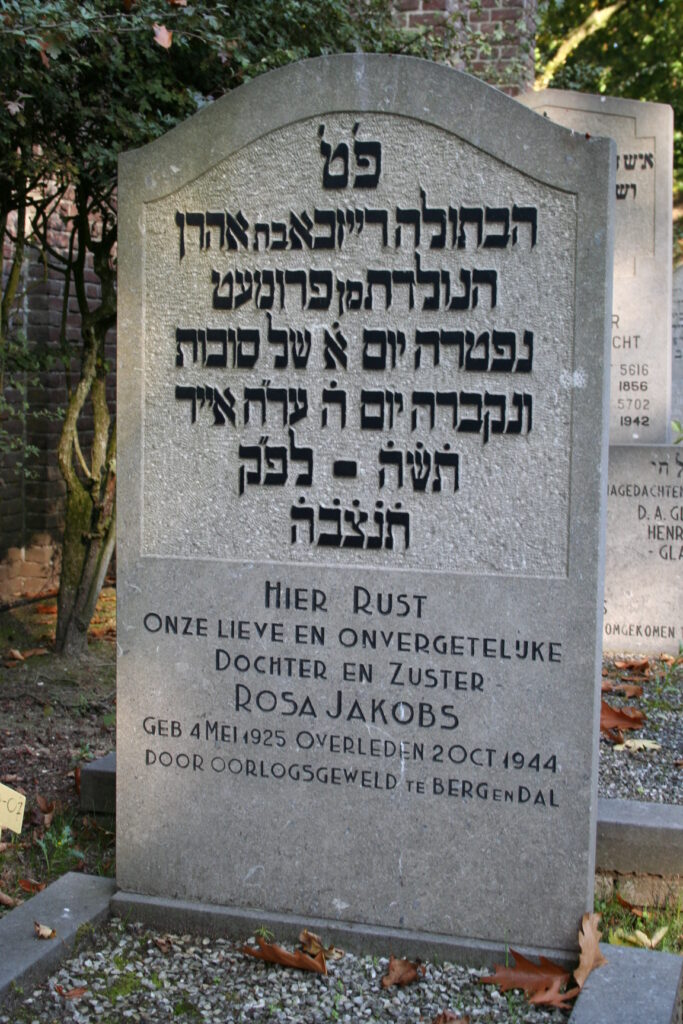
Rose Jakobs was born in 1925 in Oldenburg, Germany. She has a twin brother and a younger brother and sister. When life became too dangerous for Jews in Nazi Germany, the Jakobs family fled to the Netherlands in 1938. But 2 years later, the Netherlands is occupied and the family is no longer safe here either.
When Rose and her twin brother Martin received a call for the 'labor camp' in 1942, the Jakobs family decided to go into hiding. Rose is housed with her uncle, aunt and nephew in the attic of the Hinrichs family in Nijmegen. They have to keep quiet all day long. The family spreads the rumor that they were all shot dead by German soldiers, so that no one will look for them.
Rose kept a diary and wrote on August 30, 1942: “How could the six of us escape this terrible fate? Father considered it almost an impossibility, but Uncle Sam said: 'You can always try'”.
"How could the six of us escape this terrible fate? Father thought it was almost an impossibility, but Uncle Sam said: 'You can always try'."
Feeding people in hiding becomes increasingly difficult and expensive without enough food stamps. The relationship between the family and their people in hiding deteriorates. Rose feels less and less welcome. In 1943, the occupying forces requisitioned houses in the street where the Hinrich family lived and they were forced to take in evacuees. The chance that the people in hiding will be caught increases. On November 2, 1943, Rose was smuggled to Beek, where her parents, sister and brother were in hiding with the Jansen family. Only her twin brother is not there, he is in hiding in Den Bosch.
Despite the difficulties of hiding, birthdays and Jewish holidays are extensively celebrated by the family. The family members make gifts for each other from old materials, save goodies, write poems and donate their valuables to each other. Rose and her sister Edith long for the time when they can go outside again and study English together so they can talk to the Allied soldiers when the liberators arrive.
Rose wrote on March 6, 1943: “ Always hold on to what you have at the moment and enjoy it to the fullest. That is my watchword.”


On September 17, 1944, American paratroopers landed near the house in Beek. The Jakobs family can go outside again for the first time, but then lives in the middle of the front. They are free, but not safe. On October 2, Rose and Edith head to the first aid station where they care for wounded American soldiers. Along the way, Rose is hit by a splinter bomb. She died on the spot from internal injuries. Rose is buried in a clearing in the forest and later moved to the Jewish cemetery in Nijmegen. Rose lived in freedom for two weeks.
After the war, the Jakobs family has to build a new life without Rose. They receive Jews returning from the camps. From them they hear the terrible stories about the persecution of the Jews.
Edith Jakobs said: “At first I didn't believe it, but when I saw what these people looked like with those numbers on their arms, and I heard the terrible things they told me, I felt so sorry for them. I wanted to help them.”







